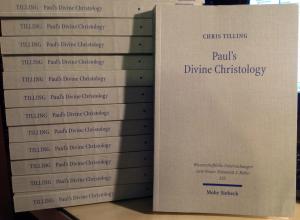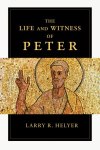Thabiti Anyabwile’s book arrived from the goodly and kind Shaun Tabatt last week and its publisher’s blurb claims
 In this transformational book, trusted pastor Thabiti Anyabwile repositions our thinking about spiritual fellowship. Extending the concept of Divine life presented in Henry Scougal’s classic The Life of God in the Soul of Man, Anyabwile contends that union with Christ is not individualistic, but is discerned in the soul of the local church. This vision of spiritual fellowship is not centred on external activities and programs, but on our shared life in Christ, as we share one another’s sufferings, use our spiritual gifts for the good of the body, partner in spreading the gospel and grow spiritually together.
In this transformational book, trusted pastor Thabiti Anyabwile repositions our thinking about spiritual fellowship. Extending the concept of Divine life presented in Henry Scougal’s classic The Life of God in the Soul of Man, Anyabwile contends that union with Christ is not individualistic, but is discerned in the soul of the local church. This vision of spiritual fellowship is not centred on external activities and programs, but on our shared life in Christ, as we share one another’s sufferings, use our spiritual gifts for the good of the body, partner in spreading the gospel and grow spiritually together.
Well, then, how to put this… This book is nearly unreadable. It isn’t in any sense ‘transformational’ unless by that word one understands oneself as being transformed from a joyful reader to a person whose soul is crushed under the weight of dread despair.
It is little more than the stringing together of what its author imagines to be pithy and clever observations on the Church. What mystifies me more than that the book was published is the fact that people like Challies and Mohler and Chester and Carter could be found to promote it with back-cover praises.
Its two parts, Foundations: Union With Christ, and Expressions: Applying our Union aim, it would appear, to lead the reader to a deeper appreciation of their mystical union with Christ and one another. What a dreadful and lamentable thing mysticism is. It’s little more than anthropocentrism gussied up in the guise of ‘spiritual sounding’ rubbish. Rightly did Emil Brunner excoriate christian mysticism (in his brilliant book on Schleiermacher) and our present author could have spared himself many sideways glances had he too taken the time to appreciate Brunner’s work.
The author’s style is worse than the subject matter. Take this singular example chosen at random from many, many possibilities:
Someone recently told me they did not think First Baptist Church was ‘friendly’ for people who were not already Christians. They preferred a seeker-sensitive atmosphere. I do not believe that to be true for a moment. Ronnie, a professing atheist, was about as non-Christian as you could get. But she tells me she felt very much welcomed and cared for by the people of First Baptist. Her new life in Christ began in large measure with her friendship with Troy and many of you. We don’t need seeker-friendly services as we need seeker-friendly lives (p. 101).
It’s like that page after page after horrifying page. Is our author’s heart in the right place? I’m sure it is. Is his spiritual gift exposition? It wouldn’t seem so. We hear far more about the Church he pastors than we do about the text which, in each chapter, really serves as little more than a launching pad for what he wishes to say.
I wish, with all my heart, that I could have discovered something positive to say about this volume. I get no pleasure from urging anyone to avoid it. But avoid it you must, if you wish to not put it down so incredibly frustrated that you reject whatever might come from the publisher in the future. it is filled with the sort of pale theology we have come to expect from the likes of Rick Warren. It is, in its sum and substance, Warren-esque. And that, goodly reader, is no commendation.
Do not buy, do not read, and do not borrow. And if someone gives it to you as a gift, take it as a sign that they wish to torture you with the aim being that you end up in an asylum somewhere.
[And now, if you’ll excuse me, I have to go read something that will restore my faith in the theological enterprise].
 The pope never hurt me, except at first when Sylvester wrote against me and put this legend in the front of his book: ‘master of the sacred palace.’ Then I thought, ‘Good God, has it come to this that the matter will go before the pope?’ However, our Lord God was gracious to me, and the stupid dolt wrote such wretched stuff that I had to laugh.
The pope never hurt me, except at first when Sylvester wrote against me and put this legend in the front of his book: ‘master of the sacred palace.’ Then I thought, ‘Good God, has it come to this that the matter will go before the pope?’ However, our Lord God was gracious to me, and the stupid dolt wrote such wretched stuff that I had to laugh.
 Chris Tilling has just asked me to review his new book! Ok, if that’s what he wants, I’ll do it…
Chris Tilling has just asked me to review his new book! Ok, if that’s what he wants, I’ll do it…



You must be logged in to post a comment.